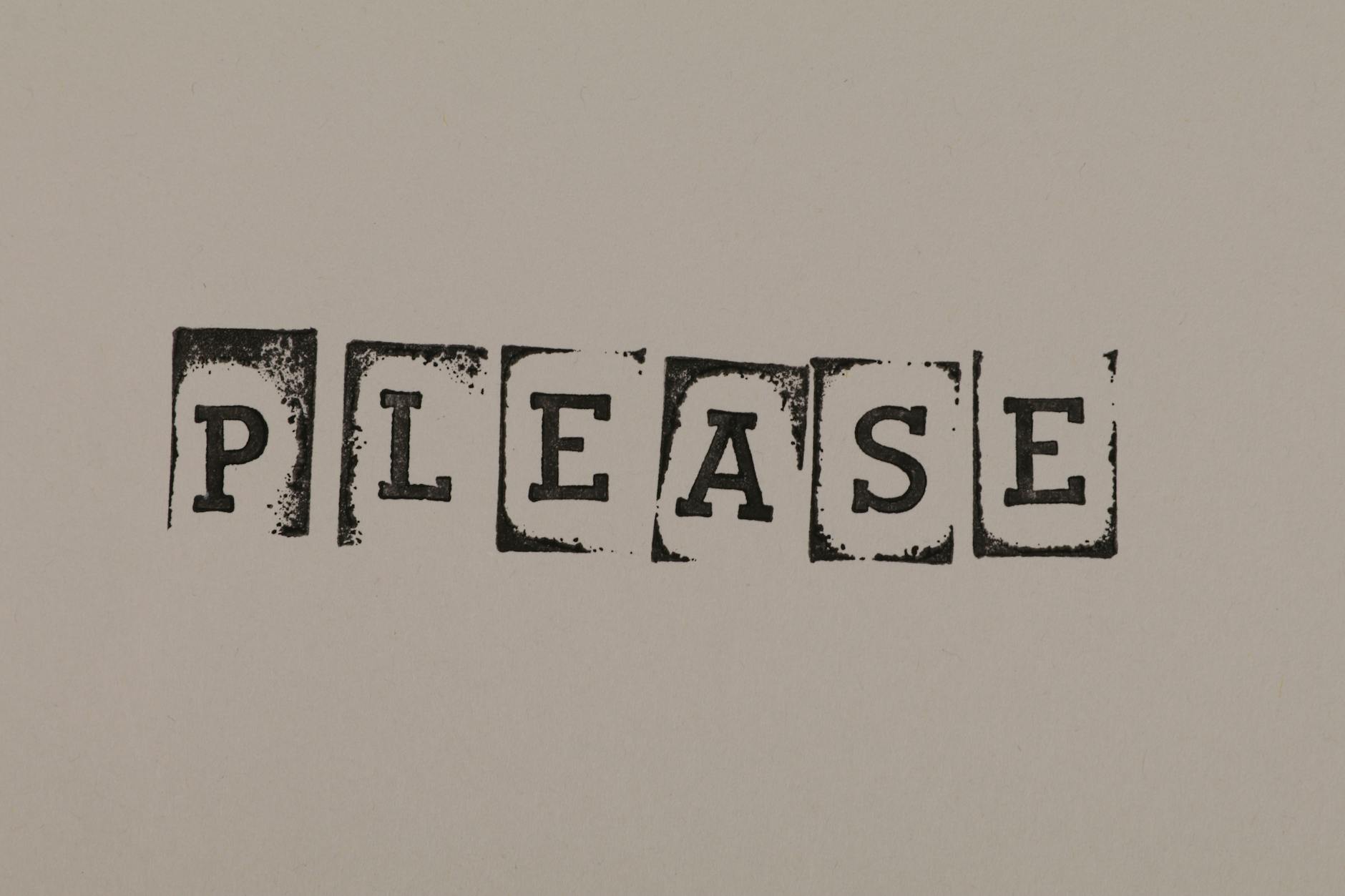During one of the first workshops I facilitated, a participant raised her hand to- presumably- answer a question I had asked. She started to answer it (sort of) but quickly and lengthily proceeded to weave her answer into a web of tangents and opinions that got farther and farther away from the original topic. So much so that I wondered what the original topic even was.
As the facilitator, it was my job to stop this tangent train, but I didn’t. I couldn’t. More accurately, I could have, but I didn’t want to, because I didn’t come off as being rude. The polite thing to do, the kind thing I thought at the time, was to let her finish rather than interrupt. I let that train roll on (and on and on…) mentally squirming inside as I noticed other people physically squirming in their seats.
Something like this happens in almost every class I teach and almost every workshop I run. I still freeze up a little when it does. It is my job (quite literally) to manage it and respond in a way that balances the needs of the individual with the needs of the group. Many times, it doesn’t seem like this is possible. Ceding the floor to someone who would not give it back if given the chance may benefit them, but it takes away from the other people in the room who deserve to get what they need out of the time too. How can this possibly be balanced?
My default response when this happens is to let the person talk until they are all talked out, not because I think it is the best way, but because I usually don’t know what else to do, or because I’m uncomfortable, but mostly because I don’t want to come off as being rude. Interrupting, I have been taught, is rude and I do not want to be that. I want to be kind.
Explicitly and implicitly throughout my life, I have been told, corrected, and rewarded based on how others have perceived my kindness. It has always been clear that kindness is considered important but it has never been clear to me exactly what kindness looks like. What does it mean to be kind? Can any action or gesture result in equal kindness to every person?
Working with a group of people in any setting lends itself to predictable situations and as a leader of that group, you are in the default position to respond to them- or not respond which of course is a response too. If- when- someone goes on and on, you have a choice to make in how you handle it. The way the other people in the room perceive the way you handle will directly impact the value of the remaining time you have together. Everyone in the room will experience the way you handle it in a different way. No matter what you do- or don’t do- someone will perceive your response as being kind while others will perceive the same response as being unkind. What’s a leader to do?
This predicament arises in many other ways. When someone shows up late, what is the kind thing to do? Do you stop what you are doing to catch them up on what they missed? If so, what kindness are you extending to the people who arrived on time and now must listen to the information all over again?
When someone is having a side conversation that is disruptive to others, is calling them out the kind thing to do or will it be received as rude? By whom?
Depending on our values, upbringings, and temperaments, we all hold our own beliefs about what qualifies something as being kind or polite versus rude. As a born and bred Bostonian, I have been told by many people, including my North Carolina born and bred nieces that I am aggressive (once even being compared to a tornado). They demonstrably slink in their chairs when I send food back that I didn’t order. They think I am being rude- unkind- and would prefer I be what they consider to be nice instead.
I have had bosses sit me down to explain the importance of putting greetings and sign offs in my emails (Hey, Jen, hope you had a great weekend! I’m writing to….. Thanks so much and hope you have a great day!)
A lot of us have been conditioned to be this type of kind. This is particularly true for women. There are a lot of reasons for this, some of which involve traditional patriarchal beliefs and others that are an attempt at self-preservation (not entirely unrelated). We sorry and just and disclaim our way through emails and meetings so as not to be called rude or aggressive by the office equivalent of Southern teenage nieces.
Why does it matter? What is the value of kindness in our work? And what does it even mean?
One definition I find particularly compelling is:
the quality of being generous, helpful and caring about other people, or an act showing this quality.
This makes sense to me. As leaders, our job is to be helpful and caring about the work we do, the people we do it with, and the people we do it for. This is kindness. When we try to put it in practice, however, the definition often loses all meaning and is frequently overtaken by an overarching goal of being nice, defined as:
pleasant, enjoyable or satisfactory
Often- too often- we choose to be nice instead of choosing to be kind, and this comes at a great cost.
- When one person goes on and on in a meeting at the expense of others’ voices being included and we do nothing to stop it, this version of kindness is actually unkind to the other people in the room and the work we are trying to do.
- When we restart a meeting or a presentation for those who are late, this version of kindness is unkind to the other people who arrived on time and now must listen to it all over again.
- When we avoid giving feedback that could help someone learn and grow out of a version of kindness that wants to spare people’s feelings, we are being unkind to their ability to grow as well as their ability to positively impact the work they are doing.
- When we tolerate poor performance out of a version of kindness that does not want someone to feel bad, we are being unkind to those they work with, and those they have been hired to serve.
- When we greenlight a poor idea out of a version of kindness that does not want to criticize, we are doing a disservice to the work we are called to do.
- When we stifle our voices out of a version of kindness that does not want to upset or offend other people, we are being unkind to ourselves and the gifts we have to share.
- When we let that off-color joke slide out of a version of kindness that does not want someone to feel embarrassed or called out, we are being unkind to those who are the brunt of the remark.
- When we choose not to make a difficult decision that we know is right out of a version of kindness that does not want to disrupt or upset others, we are being unkind to our mission and our responsibility to fulfill it.
Being kind and being nice are not mutually exclusive, of course. There are lots of people who are both kind and nice. Being nice (pleasant, enjoyable, and satisfactory) is by most accounts, a good way to be. But it should not be the goal at the expense of being kind (generous, helpful, and caring). Because often- too often- we choose niceness over kindness in ways that are not helpful or caring at all. In ways that cost us too much.
Our role as leaders is to be helpful and caring to the people we lead and to the clients we serve. To be kind in this way requires you to make decisions that others will at times perceive to be unkind. As a leader, you need to learn to be okay with this. It does not mean you should be willfully rude or disrespectful of course. It means you should be prepared that many people are much more comfortable and would prefer that you be nice. Your honesty and your willingness to hold other people accountable will sometimes be received as being not nice. What of it?
When working with other people, we constantly and consistently encounter those who think differently than we do, communicate differently than we do, and sometimes (maybe more than sometimes) drive us absolutely crazy. It is easy to expend a lot of energy on complaining about this or trying to change the way someone else is. We need to ask ourselves if what we are trying to change is really necessary or simply a wish that everyone else be just the right type of nice that we are looking for.
Ultimately, our ability to demonstrate kindness- caring and being helpful- is what helps us lead in a way that matters.
Leading with kindness means leading with honesty, even if that honesty is perceived as not being nice. Kindness is purposeful, focused, and committed to moving the work forward.
- Kindness is following through and holding one another accountable so we can all be our best selves and do our best work.
- Kindness is challenging harmful words and actions even when it upsets those who are being challenged. Perhaps especially so.
- Kindness is respecting someone else and their work enough to disagree with them and work together to find the best way.
- Kindness is saying the difficult things that need saying and doing the difficult things that need doing. Knowing that others may accuse you of not being nice.
Respect and leadership do not require emojis or extra exclamation marks to try and match someone else’s expectations of niceness. They do not demand constant dissection of someone else’s tone or subtext. They do not need to follow a rulebook of your idea (or mine) of how someone should open or close an email. We spend too much time complaining and trying to change the way someone displays their niceness and not nearly enough on how they are operating in kindness in a way that is both caring and helpful.





